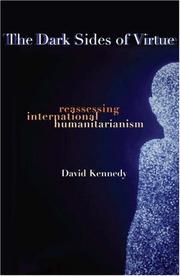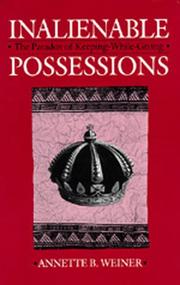| Listing 1 - 10 of 28 | << page >> |
Sort by
|
Book
Abstract | Keywords | Export | Availability | Bookmark
 Loading...
Loading...Choose an application
- Reference Manager
- EndNote
- RefWorks (Direct export to RefWorks)
collecting, Low countries --- gift giving --- anno 1600-1699
Book
Year: 2023
Abstract | Keywords | Export | Availability | Bookmark
 Loading...
Loading...Choose an application
- Reference Manager
- EndNote
- RefWorks (Direct export to RefWorks)
drawings [visual works] --- gift giving --- Lombard, Lambert --- Buonarroti, Michelangelo
Multi
ISBN: 9789463726429 946372642X 9789048550647 9048550645 Year: 2021 Publisher: Amsterdam Amsterdam University Press
Abstract | Keywords | Export | Availability | Bookmark
 Loading...
Loading...Choose an application
- Reference Manager
- EndNote
- RefWorks (Direct export to RefWorks)
This book offers a new perspective on the art of the Dutch Golden Age by exploring the interaction between the gift's symbolic economy of reciprocity and obligation and the artistic culture of early modern Holland. Gifts of art were pervasive in seventeenth-century Europe and many Dutch artists, like their counterparts elsewhere, embraced gift giving to cultivate relations with patrons, art lovers, and other members of their social networks. Rembrandt also created distinctive works to function within a context of gift exchange, and both Rembrandt and Vermeer engaged the ethics of the gift to identify their creative labor as motivated by what contemporaries called a "love of art," not materialistic gain. In the merchant republic's vibrant market for art, networks of gift relations and the anti-economic rhetoric of the gift mingled with the growing dimension of commerce, revealing a unique chapter in the interconnected history of gift giving and art making.
Art --- History of civilization --- History of the Netherlands --- art market --- patronage --- gift giving --- Vermeer, Johannes --- Rembrandt --- Hollandse school
Book
ISBN: 9782378960308 Year: 2018 Publisher: Dijon Les Presses du réel
Abstract | Keywords | Export | Availability | Bookmark
 Loading...
Loading...Choose an application
- Reference Manager
- EndNote
- RefWorks (Direct export to RefWorks)
Art --- installations [visual works] --- multimedia works --- repairing --- Buddhism --- performance art --- labyrinths [motifs] --- interactive art --- gift giving --- forgiveness --- narrative art --- Lee, Mingwei
Book
ISBN: 9048542960 9463721207 Year: 2023 Publisher: Amsterdam, Netherlands : Amsterdam University Press B.V.,
Abstract | Keywords | Export | Availability | Bookmark
 Loading...
Loading...Choose an application
- Reference Manager
- EndNote
- RefWorks (Direct export to RefWorks)
Translation was a critical mode of discourse for early modern writers. Gifting Translation in Early Modern England: Women Writers and the Politics of Authorship examines the intersection of translation and the culture of gift-giving in early modern England, arguing that this intersection allowed women to subvert dominant modes of discourse through acts of linguistic and inter-semiotic translation and conventions of gifting. The book considers four early modern translators: Mary Bassett, Jane Lumley, Jane Seager, and Esther Inglis. These women negotiate the rhetorics of translation and gift-culture in order to articulate political and religious affiliations and beliefs in their carefully crafted manuscript gift-books. This book offers a critical lens through which to read early modern translations in relation to the materiality of early modern gift culture.

ISBN: 0691116865 0691123942 9780691123943 1400840732 9786613134752 1283134756 9780691116860 9781400840731 Year: 2005 Publisher: Princeton, N.J. Princeton University Press
Abstract | Keywords | Export | Availability | Bookmark
 Loading...
Loading...Choose an application
- Reference Manager
- EndNote
- RefWorks (Direct export to RefWorks)
In this provocative and timely book, David Kennedy explores what can go awry when we put our humanitarian yearnings into action on a global scale--and what we can do in response. Rooted in Kennedy's own experience in numerous humanitarian efforts, the book examines campaigns for human rights, refugee protection, economic development, and for humanitarian limits to the conduct of war. It takes us from the jails of Uruguay to the corridors of the United Nations, from the founding of a non-governmental organization dedicated to the liberation of East Timor to work aboard an aircraft carrier in the Persian Gulf. Kennedy shares the satisfactions of international humanitarian engagement--but also the disappointments of a faith betrayed. With humanitarianism's new power comes knowledge that even the most well-intentioned projects can create as many problems as they solve. Kennedy develops a checklist of the unforeseen consequences, blind spots, and biases of humanitarian work--from focusing too much on rules and too little on results to the ambiguities of waging war in the name of human rights. He explores the mix of altruism, self-doubt, self-congratulation, and simple disorientation that accompany efforts to bring humanitarian commitments to foreign settings. Writing for all those who wish that "globalization" could be more humane, Kennedy urges us to think and work more pragmatically. A work of unusual verve, honesty, and insight, this insider's account urges us to embrace the freedom and the responsibility that come with a deeper awareness of the dark sides of humanitarian governance.
Humanitarian assistance --- Humanitarianism. --- Aide humanitaire --- Humanitaire --- Evaluation. --- Evaluation --- #A0511PSA --- Humanitarian assistance. --- Human welfare --- Philanthropy --- Social welfare --- Humanitarian aid --- Charities --- Ethics --- International relief --- International movements --- Social ethics --- Human rights --- Humanitarianism --- Altruism. --- Beneficence --- Gift Giving --- Prosocial Behavior --- Behavior, Prosocial --- Behaviors, Prosocial --- Prosocial Behaviors

ISBN: 1282359215 9786612359217 0520933729 9780520933729 9780520251045 0520251040 Year: 2007 Publisher: Berkeley University of California Press
Abstract | Keywords | Export | Availability | Bookmark
 Loading...
Loading...Choose an application
- Reference Manager
- EndNote
- RefWorks (Direct export to RefWorks)
Written for everyone who loves and is simultaneously driven crazy by the holiday season, Christmas: A Candid History provides an enlightening, entertaining perspective on how the annual Yuletide celebration got to be what it is today. In a fascinating, concise tour through history, the book tells the story of Christmas-from its pre-Christian roots, through the birth of Jesus, to the holiday's spread across Europe into the Americas and beyond, and to its mind-boggling transformation through modern consumerism. Packed with intriguing stories, based on research into myriad sources, full of insights, the book explores the historical origins of traditions including Santa, the reindeer, gift giving, the Christmas tree, Christmas songs and movies, and more. The book also offers some provocative ideas for reclaiming the joy and meaning of this beloved, yet often frustrating, season amid the pressures of our fast-paced consumer culture. DID YOU KNOWFor three centuries Christians did not celebrate Christmas? Puritans in England and New England made Christmas observances illegal? St. Nicholas is an elf in the famous poem "The Night Before Christmas"? President Franklin Roosevelt changed the dateof Thanksgiving in order to lengthen the Christmas shopping season? Coca-Cola helped fashion Santa Claus's look in an advertising campaign?
Christmas --- History. --- biblical history. --- biographical. --- biography. --- birth of jesus. --- christmas history. --- christmas songs. --- christmas traditions. --- faith and belief. --- family. --- gift giving. --- history of christianity. --- holiday season. --- intriguing stories. --- life lessons. --- memoir. --- modern consumerism. --- pre-christian roots. --- reclaiming the joy. --- reindeer. --- santa. --- spirituality. --- story of christmas. --- tour through history. --- uplifting stories.

ISBN: 0801461537 9780801461538 9780801444869 0801444861 9780801473012 0801473012 0801465087 9780801465086 1322502900 Year: 2008 Publisher: Ithaca (N.Y.): Cornell university press,
Abstract | Keywords | Export | Availability | Bookmark
 Loading...
Loading...Choose an application
- Reference Manager
- EndNote
- RefWorks (Direct export to RefWorks)
Years of tremendous growth in response to complex emergencies have left a mark on the humanitarian sector. Various matters that once seemed settled are now subjects of intense debate. What is humanitarianism? Is it limited to the provision of relief to victims of conflict, or does it include broader objectives such as human rights, democracy promotion, development, and peacebuilding?For much of the last century, the principles of humanitarianism were guided by neutrality, impartiality, and independence. More recently, some humanitarian organizations have begun to relax these tenets. The recognition that humanitarian action can lead to negative consequences has forced humanitarian organizations to measure their effectiveness, to reflect on their ethical positions, and to consider not only the values that motivate their actions but also the consequences of those actions.In the indispensable Humanitarianism in Question, Michael Barnett and Thomas G. Weiss bring together scholars from a variety of disciplines to address the humanitarian identity crisis, including humanitarianism's relationship to accountability, great powers, privatization and corporate philanthropy, warlords, and the ethical evaluations that inform life-and-death decision making during and after emergencies.Contributors: Michael Barnett, University of Minnesota; Craig Calhoun, New York University; James D. Fearon, Stanford University; Laura Hammond, SOAS, University of London; Peter J. Hoffman, Hunter College; Stephen Hopgood, SOAS, University of London; Peter Redfield, University of North Carolina, Chapel Hill; Jennifer C. Rubenstein, Princeton University; Jack Snyder, Columbia University; Janice Gross Stein, University of Toronto; Thomas G. Weiss, CUNY Graduate Center
Humanitarian assistance. --- Humanitarianism. --- International relief. --- Grants-in-aid, International --- International grants-in-aid --- Relief, International --- Relief (Aid) --- Human welfare --- Philanthropy --- Social welfare --- Humanitarian aid --- Charities --- Economic assistance --- Public welfare --- Ethics --- International relief --- Humanitarian assistance --- Humanitarianism --- Relief Work --- Altruism --- #SBIB:327.6H02 --- #SBIB:327.5H20 --- #SBIB:327.4H71 --- Prosocial Behavior --- Behavior, Prosocial --- Behaviors, Prosocial --- Prosocial Behaviors --- Beneficence --- Gift Giving --- Humanitarian Assistance --- Assistance, Humanitarian --- Assistances, Humanitarian --- Humanitarian Assistances --- Relief Works --- Work, Relief --- Works, Relief --- Disasters --- Social Work --- Rescue Work --- Internationale problemen: bijzondere vraagstukken --- Vredesonderzoek: algemeen --- Derde wereld en wereldsysteem, internationale relaties --- Aide humanitaire. --- Aide humanitaire --- Organisations non gouvernementales. --- Mondialisation. --- Secours international. --- Histoire. --- Aspect économique. --- Humanitaire --- Secours international --- Social organizations --- Aspect économique.
Book
ISBN: 0127604502 Year: 1978 Publisher: New York (N.Y.): Academic press
Abstract | Keywords | Export | Availability | Bookmark
 Loading...
Loading...Choose an application
- Reference Manager
- EndNote
- RefWorks (Direct export to RefWorks)
Altruism. --- Helping Behavior. --- Psychological Theory. --- 159.942*4 --- Altruism --- Helping behavior --- Behavior, Helping --- Human behavior --- Interpersonal relations --- Caring --- Altruistic behavior --- Unselfishness --- Conduct of life --- Charity --- Psychologic Theory --- Psychological Theories --- Theories, Psychological --- Theory, Psychological --- Psychologic Theories --- Theories, Psychologic --- Theory, Psychologic --- Behaviors, Helping --- Helping Behaviors --- Humanitarianism --- Beneficence --- Gift Giving --- Affectie --- Helping behavior. --- Psychological theory. --- Social behavior. --- 159.942*4 Affectie --- Helping Behavior --- Psychological Theory --- Social Cognitive Theory --- Cognitive Theories, Social --- Cognitive Theory, Social --- Social Cognitive Theories --- Theories, Social Cognitive --- Theory, Social Cognitive --- Prosocial Behavior --- Behavior, Prosocial --- Behaviors, Prosocial --- Prosocial Behaviors

ISBN: 0585108552 0520911806 1282356062 9786612356063 9780520911802 9780585108551 0520076036 0520076044 9781282356061 9780520076044 9780520076037 Year: 1992 Publisher: Berkeley University of California Press
Abstract | Keywords | Export | Availability | Bookmark
 Loading...
Loading...Choose an application
- Reference Manager
- EndNote
- RefWorks (Direct export to RefWorks)
Inalienable Possessions tests anthropology's traditional assumptions about kinship, economics, power, and gender in an exciting challenge to accepted theories of reciprocity and marriage exchange. Focusing on Oceania societies from Polynesia to Papua New Guinea and including Australian Aborigine groups, Annette Weiner investigates the category of possessions that must not be given or, if they are circulated, must return finally to the giver. Reciprocity, she says, is only the superficial aspect of exchange, which overlays much more politically powerful strategies of "keeping-while-giving. "The idea of keeping-while-giving places women at the heart of the political process, however much that process may vary in different societies, for women possess a wealth of their own that gives them power. Power is intimately involved in cultural reproduction, and Weiner describes the location of power in each society, showing how the degree of control over the production and distribution of cloth wealth coincides with women's rank and the development of hierarchy in the community. Other inalienable possessions, whether material objects, landed property, ancestral myths, or sacred knowledge, bestow social identity and rank as well. Calling attention to their presence in Western history, Weiner points out that her formulations are not limited to Oceania. The paradox of keeping-while-giving is a concept certain to influence future developments in ethnography and the theoretical study of gender and exchange.
Ceremonial exchange --- Women --- Economic anthropology --- Feminist anthropology --- Feminist ethnography --- Feminist ethnology --- Anthropology --- Commerce, Primitive --- Economics, Primitive --- Economics --- Ethnology --- Human females --- Wimmin --- Woman --- Womon --- Womyn --- Females --- Human beings --- Femininity --- Gift exchange --- Exchange --- Rites and ceremonies --- Economic conditions. --- Social conditions. --- Methodology. --- Ceremonial exchange - Oceania --- Women - Oceania - Economic conditions --- Women - Oceania - Social conditions --- Economic anthropology - Oceania - Methodology --- Feminist anthropology - Oceania --- aboriginal. --- academic. --- ancestry. --- anthropology. --- australia. --- cultural anthropology. --- culture. --- economics. --- economy. --- feminism. --- feminist. --- finance. --- gender issues. --- gender studies. --- gift giving. --- giving gifts. --- identity. --- international. --- kinship. --- marriage. --- money. --- oceania. --- papua new guinea. --- political. --- politics. --- polynesia. --- possessions. --- power. --- property. --- research. --- sacred. --- scholarly. --- social studies. --- western history. --- womens issues. --- world history.
| Listing 1 - 10 of 28 | << page >> |
Sort by
|

 Search
Search Feedback
Feedback About UniCat
About UniCat  Help
Help News
News